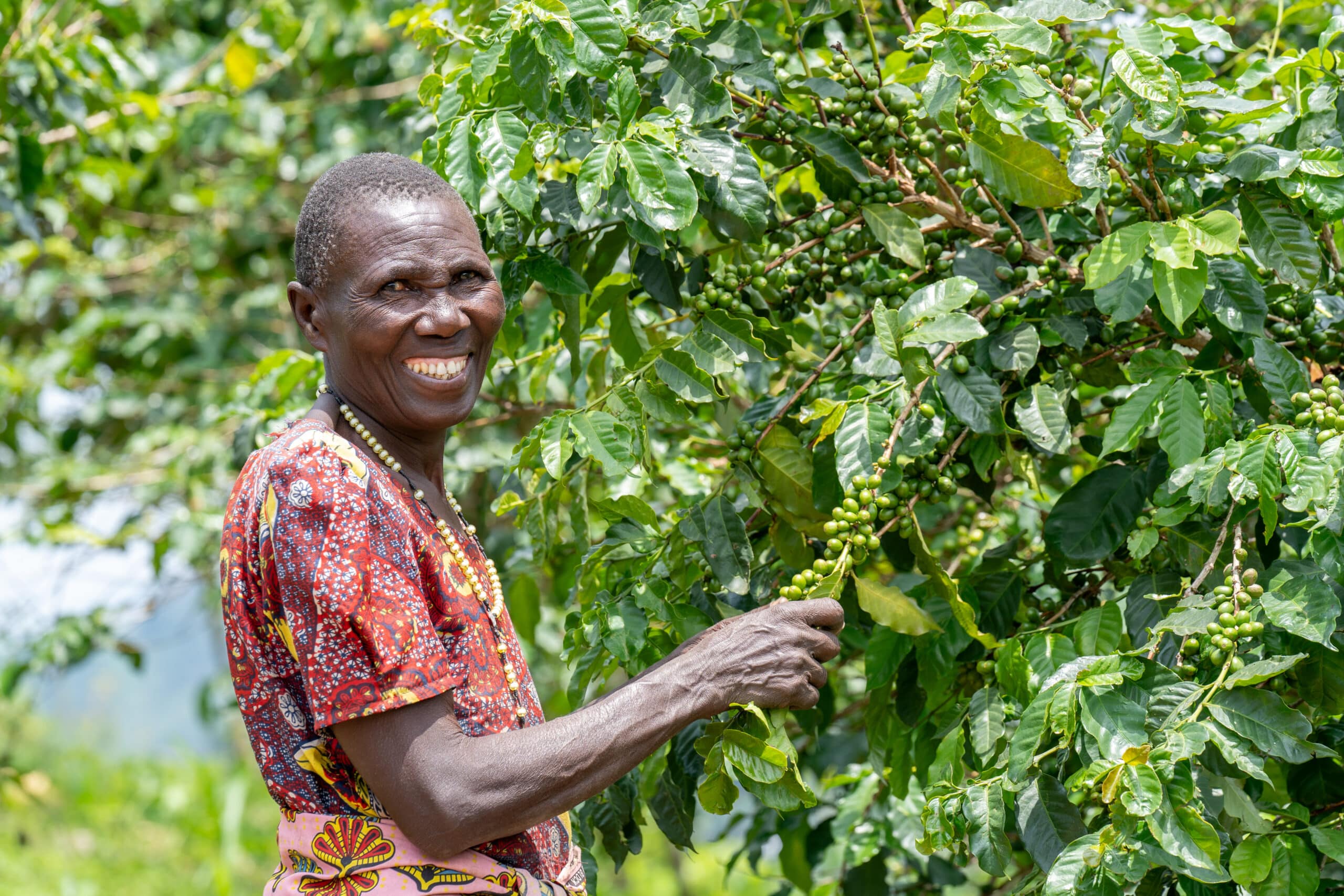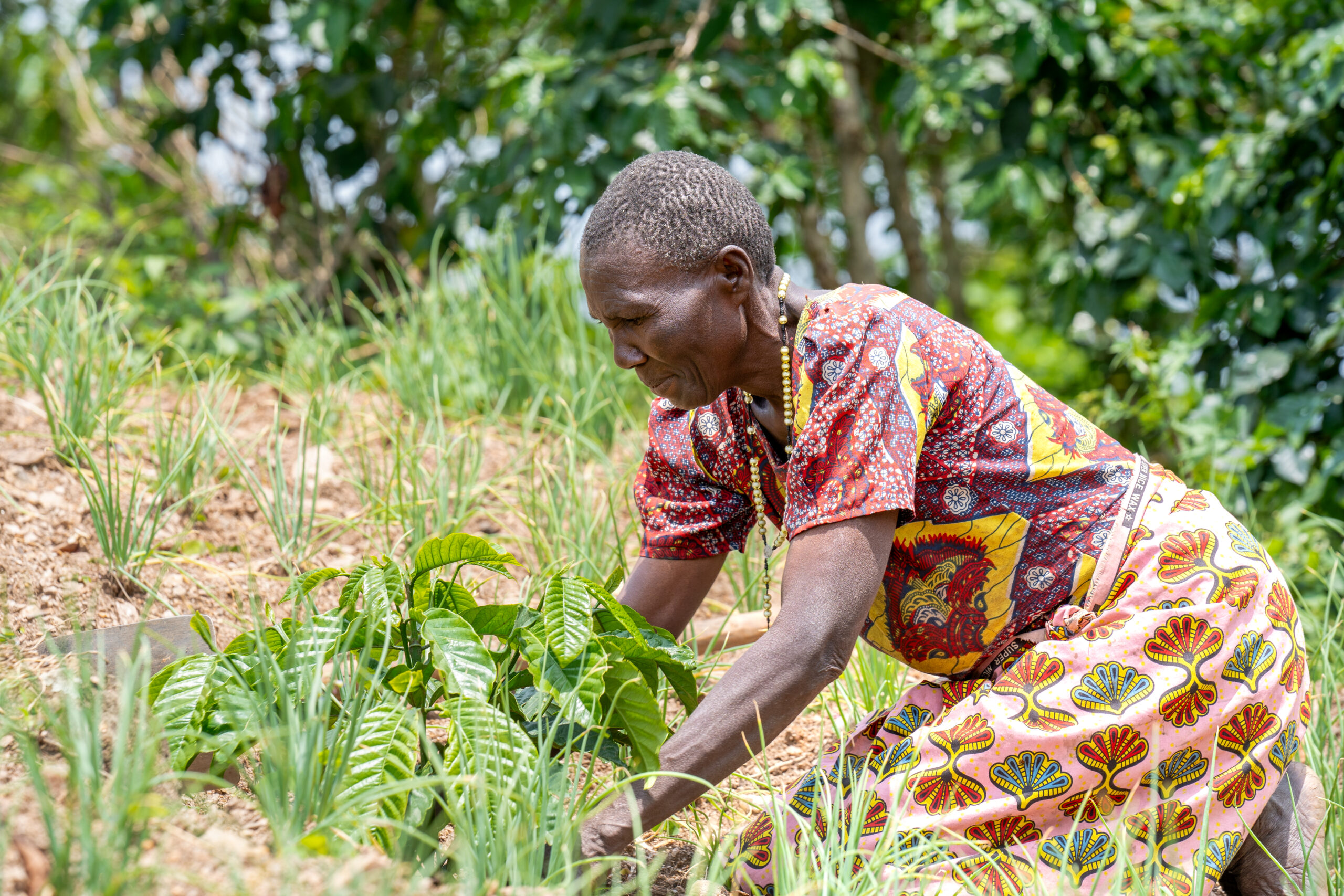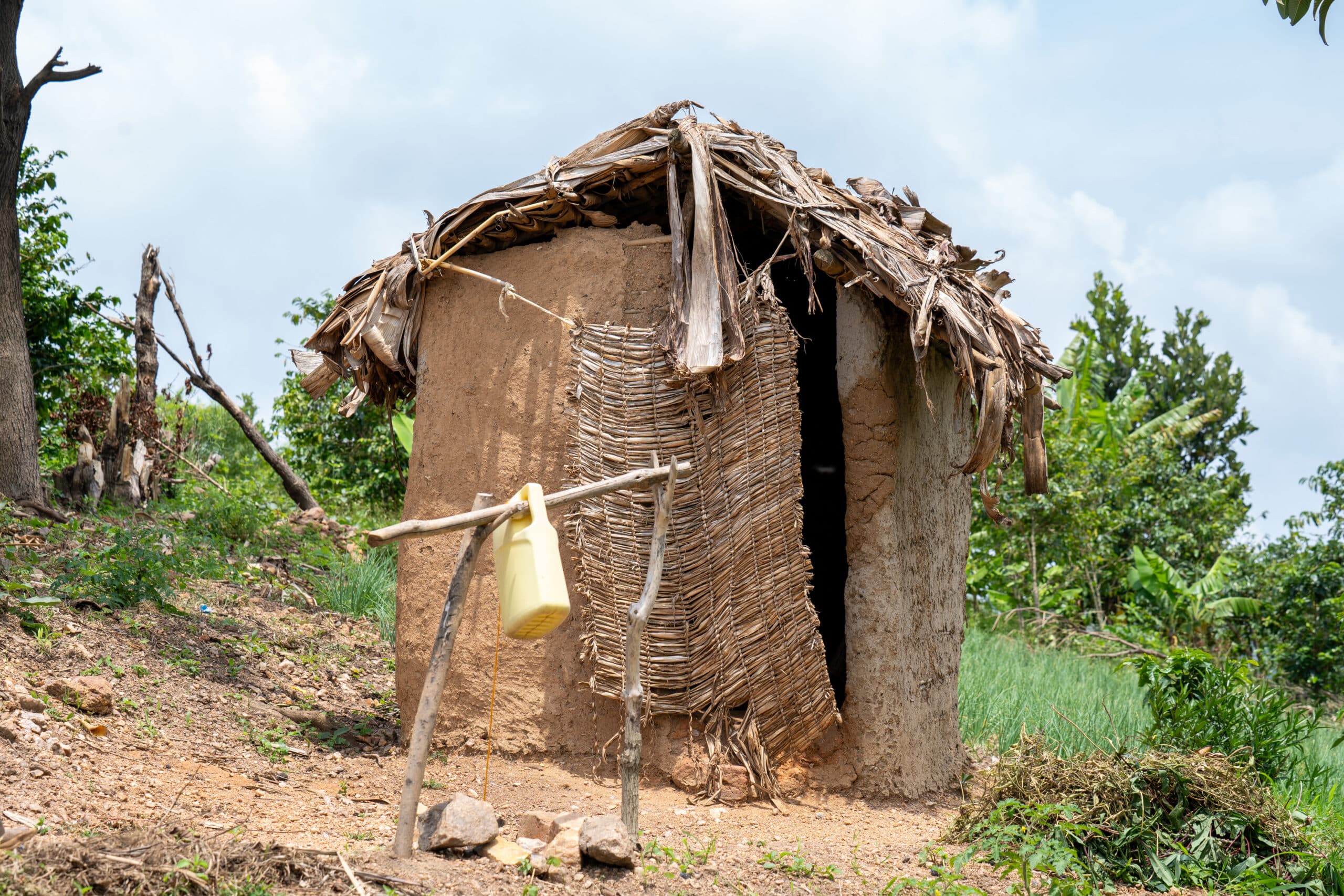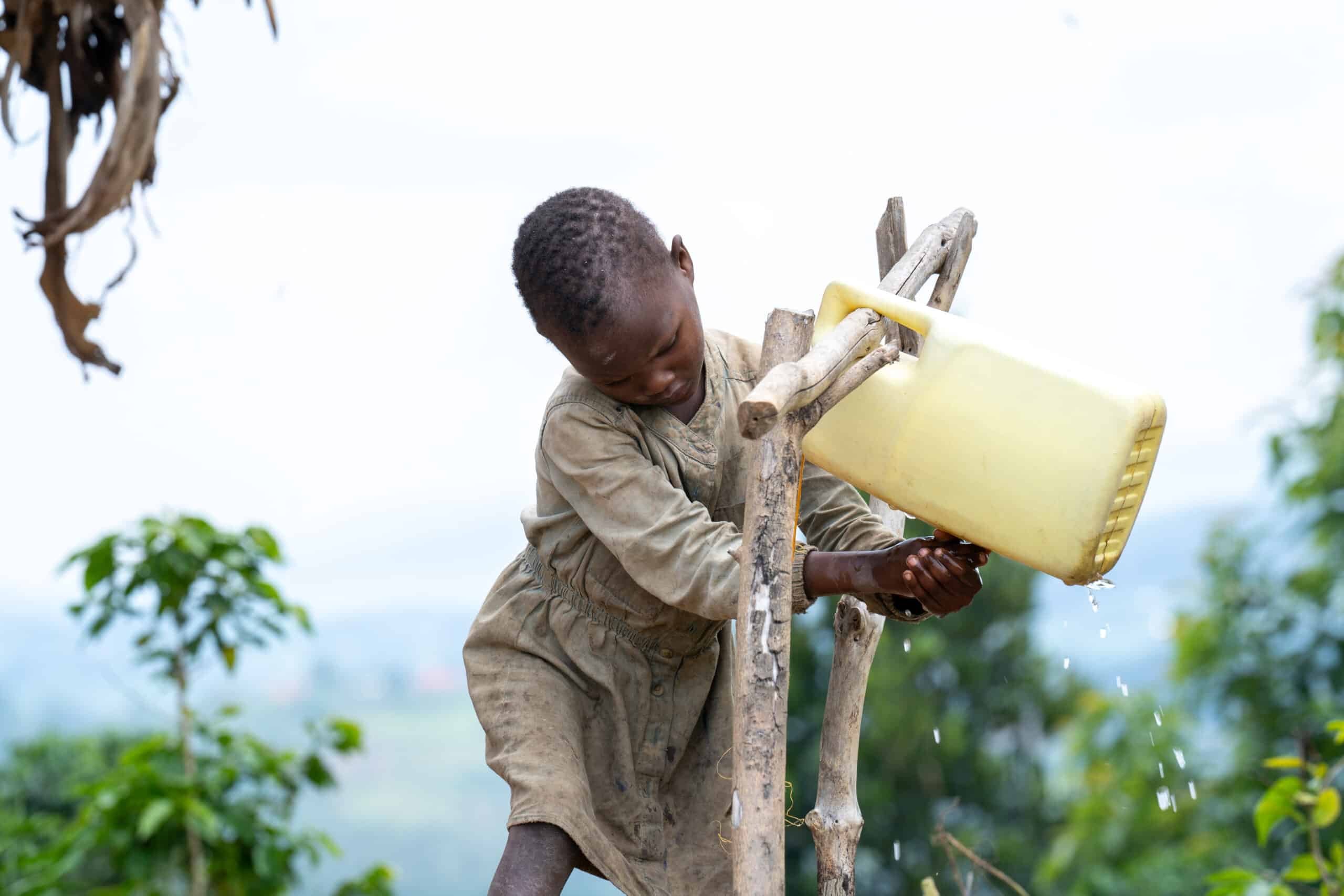Laying the Foundation for Tomorrow

In a last-mile village in Kitagwenda in Western Uganda, 67-year-old Boniconcilla is slowly building a better future for her family. Financial instability and low crop yields made looking after her four grandchildren a daily struggle. “Our farming practices were different. There were so many things we did not know about, and our harvest was generally low,” she shares, “We did not regularly grow or consume vegetables either,” she adds further. Boniconcilla was not alone. Most substance farmers in the last-mile communities experience similar challenges. While poor agricultural productivity remains one of the drivers of ultra-poverty, barriers such as food insecurity, lack of access to clean water and other necessities, and lack of affordable credit prevent families from participating in economic activities.

In early 2024, Boniconcilla’s community partnered with RTV to address these challenges sustainably. They participated in various training sessions on modern farming practices, financial literacy, sanitation and hygiene, and forming Village Savings and Loans Associations. “We learned about better farming practices like making and using organic manure and fertilizers on our crops, crop spacing, and how to prepare and store our harvests,” Boniconcilla said. She prepared liquid manure, applied it to her coffee trees, and experienced an evident difference. “In a short period, I started witnessing positive changes. The trees became greener, and they started producing a lot more berries than in the past,” she shared. After the sessions, women-headed households received twenty seedlings of improved robusta coffee to expand their coffee production. “I was given coffee seedlings, which I planted in my garden. While the coffee trees are still young, they look better than my current trees were at the same stage. I am very hopeful of a better harvest when they mature,” Boniconcilla states. She also received good-quality seasonal varieties, including beans, maize, and Irish potato seeds.

Community members, including Boniconcilla, received various vegetable seeds, such as spinach, eggplant, sukuma wiki, amaranth, and pumpkin, grow vegetables through keyhole gardens to improve food security. To further improve overall health and as key learnings from the WASH sessions, Boniconcilla adopted better hygiene practices such as constructing a tippy tap, using a covered latrine, and using a dish rack. These practices focused on reducing water-borne diseases and improving overall health in the community.

Boniconcilla recently joined a Village Savings and Loans Association (VSLA) to save small amounts each week and is working on creating a brighter future for her family. With her coffee trees looking better than ever, she is expecting a good harvest and income. “I hope to meet my family’s needs more easily in the near future and keep my grandchildren in school,” she shares with a smile.
Be part of our journey. Support last-mile communities by supporting Raising The Village.
Let’s Stay Connected

